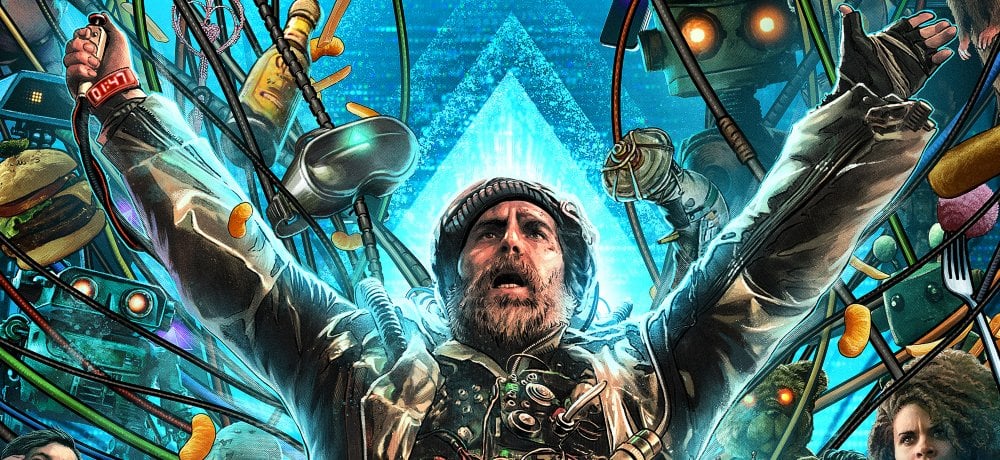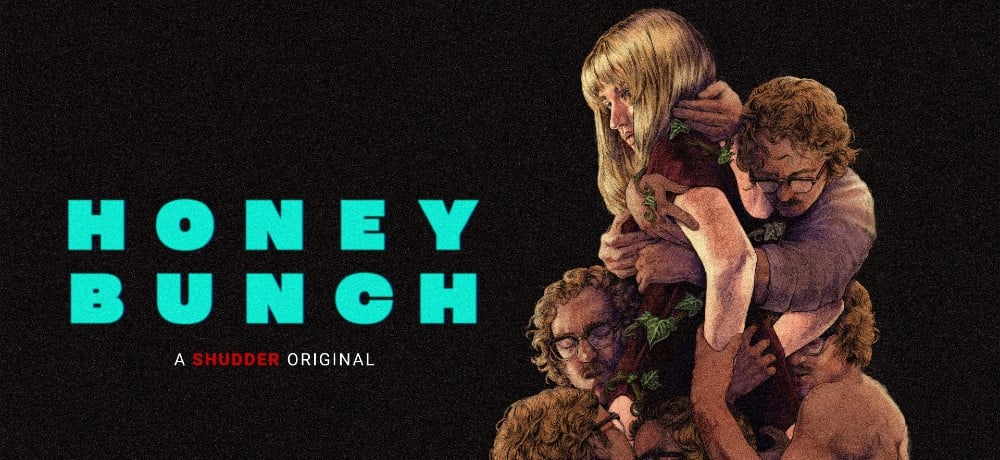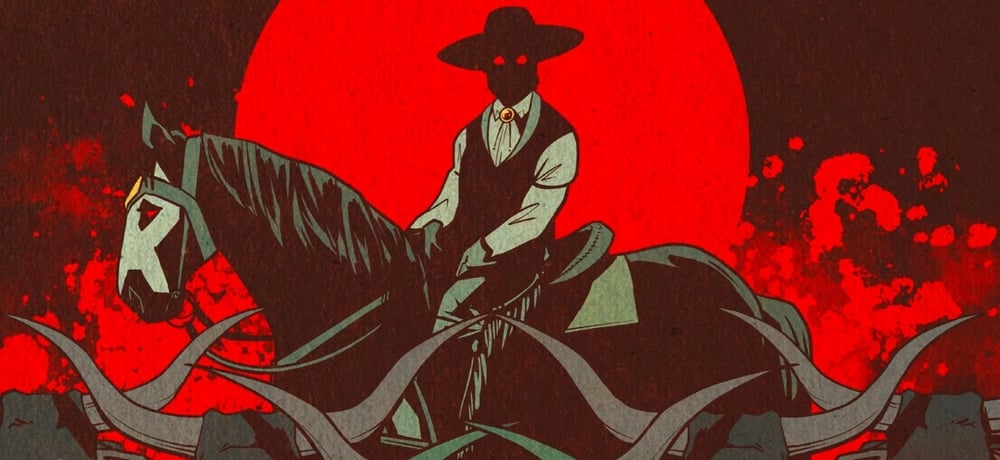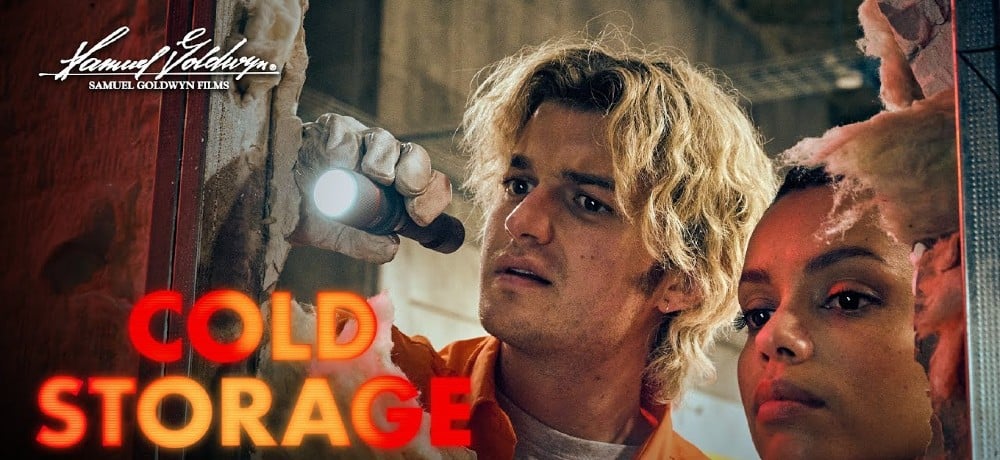





Last week, prolific indie genre producer Travis Stevens celebrated the premiere of his directorial debut, Girl on the Third Floor, which screened as part of the Midnighters slate of programming at the 2019 SXSW Film Festival (you can read my review HERE). While in Austin, Daily Dead sat down with Stevens as well as several of the Girl on the Third Floor cast members, including Phil Brooks (who fans worldwide also know as CM Punk), Trieste Kelly Dunn, Sarah Brooks, Elissa Dowling, and Travis Delgado, and we chatted about finally having the film out there in the world after its premiere at the fest, the real-life inspirations behind the story of Girl on the Third Floor, and their experiences working together out in Frankfort, Illinois.
Both Stevens and Phil Brooks also discussed taking their respective careers in new directions with their collaboration, and how much Girl on the Third Floor was a team effort in every possible way.
So, how does everybody feel today, now that the movie is out there after this first screening? Does it feel surreal at all?
Sarah Brooks: I was just so happy to have the chance to see stuff that I didn't read on the page. Reading a horror film is a whole different experience than watching one, and there is just so much happening in this story. I was still surprised by a lot of the movie, even after being there and knowing what was on the page.
Phil Brooks: I am my worst critic when it comes to everything. I criticize myself about how I walk my dog in the morning. And today, I am just feeling super, super stoked and elated and happy. I hate everything I do, but I just feel like I was surrounded with awesome people and we had such a great script and a great clay mold, and we made something really cool together. And so I'm really stoked about it today.
This takes place in the suburbs of Chicago, which is something I always love because that’s where I’m from, originally. I know Phil has roots there, so was this something that had always been planned for this location, or did that come together once Phil was involved?
Travis Stevens: So Greg Newman, who's a producer for Queensbury Pictures, had come across this house and heard those stories and had said, "Hey, we should make a movie here." Now, we had to go out and find a movie to make, and so then we had to start that process. But it all started with the actual house and the house's actual history, and we just built it from there. And that's how we got great Chicago actors, too, and we all had a lot of fun there.
Travis, we've talked a bunch over the years, and we had even chatted about you directing one day. So what was it about the timing with this project—did you just feel like you were ready? You've produced so many great films, so I was very excited to see that you were stepping forward as a director.
Travis Stevens: Thanks. Yeah, I think it was a combination of opportunity, and also this particular story really spoke to me, and I was like, "Yeah, I'd like to tell a story about temptation, weakness, discipline, and determination.” So I decided that I was just going to go and write something and see if anybody likes it. And it seemed to work. I think the universe just was like, "Okay, let’s do this."
For the cast, from your perspectives, how was it to immerse yourself in these characters and this story?
Elissa Dowling: There are no clear villains and heroes in this film. I think even Phil’s character has some admirable qualities, where you think, "Okay, he means well. He screwed up, but he didn't mean it.” And then it kind of takes a turn. What I think makes a great villain is if you can play someone that people can identify with—it's not just angry ghosts. I was a little girl, and bad things happened to me, and I'm trying to make up for that.
Travis Delgado: Honestly, I was more nervous about being in the house than my character, to tell you the truth [laughs]. But, really, I just wanted to contribute as much as I could to the film, and have Milo feel like he was someone Don could rely on.
Sarah Brooks: Irys Kornbluth was our costume designer and she did a wonderful job. For my character to be able to have some of those great period pieces of clothing really helped me jump into that world and my character.
For Trieste and Phil, the emotional crux of this film is the relationship between your characters. So, how did you guys work on that chemistry, because most of the time you’re communicating, you're doing it through technology. And that’s interesting in itself, because that’s how a lot of relationships start these days.
Trieste Kelly Dunn: That's a good point. We didn't even actually do those calls together, because I wasn't on set. We basically shot two scenes together—two very different scenes I might add—and that was it the entire time.
Phil Brooks: And I had already shot all the fun stuff. When we started hanging out with each other on set, I was like, "Wait a second, we don't even get to have any dialogue scenes together." But that's the sausage making that nobody wants to hear about. I was on set alone for the first week or maybe even two weeks, whatever it was, where it was me and the dog. It was a while before I met anybody else.
Travis Stevens: But that was intentional. This is a story that we start with a character by himself, and we're seeing the world through his perspective. And so it was intentional to keep these two apart, because the audience is learning about Liz through Don, until we meet her on her own terms. I wanted his performance to be completely dictated by whatever he's creating by himself, versus creating it together. And it all came together seamlessly.
Speaking to that, Phil, because so much of this story revolves around your character and your performance, did you feel any added pressure? Especially because this is also your first time starring in a film as well, which means there are a lot of eyes on you here.
Phil Brooks: I thrive on situations like that. But also, I think it's because I take the responsibility on myself that these people have hired me to do a job, so I have to do the best job I can. I have to understand when to fall behind, and I have to understand when I have to be a leader, too. And so it’s on me to make sure I knock it out of the park—I hope I did here. I went out of my way to make sure that everybody was super comfortable, and I'm a big believer in being the first one there and the last one to leave. So, I was more flattered than anything that they would ask me to do this, and honestly, it probably psychologically fed my ego, too, where it was like, "Here, you're going to do this thing, and you're going to be the lead now."
And I felt the weight, but it wasn't a bad pressure, it was a good pressure, and the environment was just fun. I keep saying it, but it's so true—there were no jerks on set here. Everyone was there for the right reason, and there’s the saying about it only taking one asshole to ruin everything, but that didn’t happen on this.
Travis Stevens: And the energy of your collaborators is reflected in the end result. And so it was really important to balance Phil's work ethic with Trieste’s naturalistic abilities with Elissa having a background in body performances and so on. It’s like making music, where you're adding different instruments, and then you get something that is hopefully in harmony and really fun. So, for me, it was just great to look for the different aspects that each person brought as a performer and try to put them together for this film.
---------
In case you missed it, check here to catch up on all of our live coverage of the SXSW 2019 Film Festival, including more interviews, reviews, and horror news from the fest!